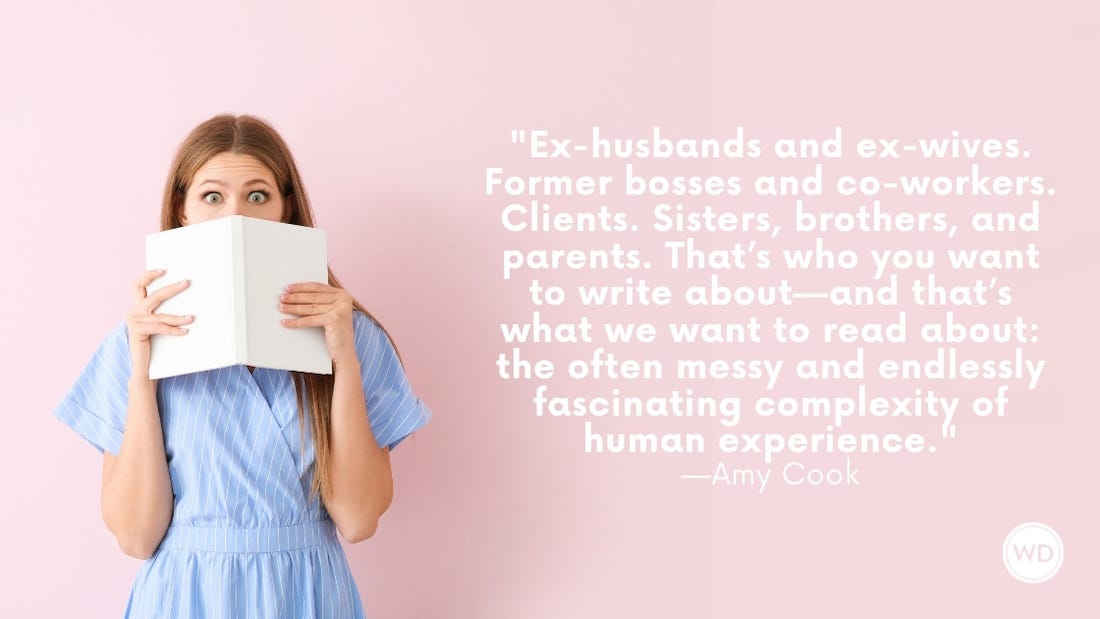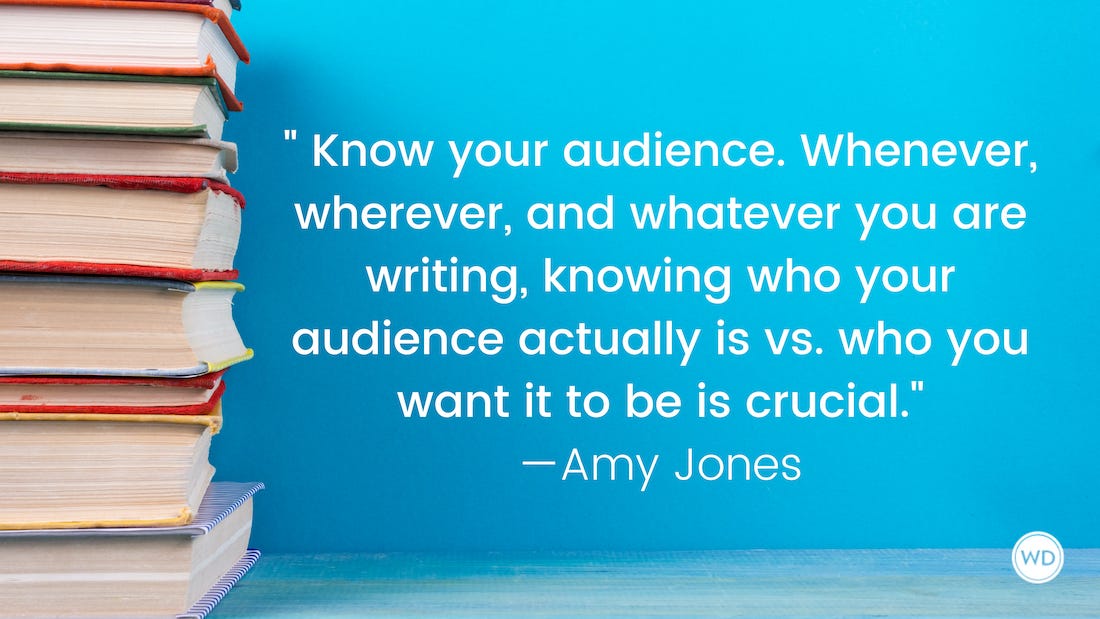WHAT NOT TO WRITE: Vantage Point
Hey, screenwriters— I just want to say this up front: my wife made me go. Okay, that’s a lie. She definitely wanted to go more than I did, but the…
Hey, screenwriters—
I just want to say this up front: my wife made me go.
Okay, that's a lie.
She definitely wanted to go more than I did, but the truth is: I kinda wanted to see it. At least, I had wanted to see it… before it got nothing but horrible reviews. In fact, the best thing I heard about it was from a friend who saw it and said, “I dunno… there are probably worse ways to spend two hours.”
I’m talking about Vantage Point, the Pete Travis movie which came out a couple weeks ago and was universally panned. And rightly so. The movie’s pretty horrible, although to be fair, it’s an interesting premise that you really want to work. Unfortunately, it just doesn’t.
Basically, Vantage Point is the story of an attempted presidential assassination-- and the investigation of who’s behind it-- as seen from multiple perspectives, a la Rashomon. So it replays the same events multiple times, each from a different character’s point of view… illuminating a bit more of the story and a few more clues each time.
I won’t go into all things that are wrong with the movie because it’s a LOT… the least of which is Forest Whitaker’s ridiculous overacting. The guy practically narrates everything he does on screen. If his phone rings, he says to himself, “My phone’s ringing… need to see who it is…” If he spots someone mysterious through his video camera, he says... “Hm… that’s weird… I wonder if he should be there…”
However... I did think Vantage Point was a perfect example of one of the biggest mistakes to avoid when writing a mystery movie, which—at its heart—this is. Here’s the problem…
The posters, billboards, and marketing campaign for the movie were all based around the question/tagline: “Can you solve the puzzle?” (Check out the trailer below.) Which, sure, is simply a marketing tool.
Except that it’s not "simply a marketing tool"…
…because “can you solve the puzzle?” suggests that what makes this movie fun, like any mystery, is that YOU—the viewer or reader—are trying to solve the mystery along with the story’s heroes or detectives (in this case, Secret Service Agent Thomas Barnes).
And it’s right. That’s exactly what should make this movie fun.
We love mysteries, whether it’s Sherlock Holmes or CSI, because we enjoy participating in the puzzle-solving. Which means the storyteller has one very important job: to lay out clues that track logically from one to the next, so when everything adds up in the end, we—the audience—have that amazing “aha!” moment that all great mysteries have. That “oh-my-God-I-should’ve-seen-that!” moment. Or the “oh-of-course-it-all-makes-sense!” moment.
This doesn’t mean we should be able to solve the mystery before the hero. It simply means that we need to be able to feel like we could, and that when the solution is finally unveiled, we can flip back through the clues in our head and see how it all fits together.
But Vantage Point never attempts to let you try and solve the mystery. Why? Because it purposely and shamelessly withholds clues. For instance…
Characters continually see clues we’re not allowed to see. I.e., at one point, Agent Barnes (Dennis Quaid) is watching a playback of the assassination on Howard Lewis's (Forest Whitaker) camcorder. As he watches the screen, his eyes go wide, he says something ominous like, “Oh my God—that’s it!” and races off. We don’t find out till much later, in a different person’s “story,” what he saw. Which is not only frustrating as hell, it’s a cheap shot on the part of the storyteller. We realize that the solution to the mystery is right in front of us, but we’re unable to solve it—or have the fun of trying to solve it—not because it’s a complex, intriguing puzzle, but because the storyteller is willfully withholding information… and sharing it with other characters right in front of us!
Also, each mini-story (each time we see the event from a new perspective) ends in a cliffhanger. At one point, for example, one of the main characters steps out to confront someone and says, “Bet you didn’t expect to see me alive, did you?”… but before we see who he’s talking to, the mini-story ends and we move on to someone else’s perspective. And while cliffhangers are supposed to be maddening and suspenseful, they should be maddening and suspenseful because we’re so emotionally invested in characters, relationships, and events that we’re dying to know what happens next… not because we’re angry at the filmmaker for not giving us information that's clearly right in front of our noses.
So while these moments are frustrating in and of themselves, the bigger problem is that we’re constantly aware that the filmmaker is not giving us the promised clues, so we’re never allowed to try and solve the puzzle… which is not only a complete betrayal of the marketing campaign’s promise, it’s a betrayal of the promise made by all mystery storytellers at the beginning of the mystery. Which is: “I, the storyteller, am going to create a mystery so complex and intriguing you can’t solve it… but we promise to play fair along the way, giving you all the clues and tools you’ll need to solve it.” In other words, "we'll do our best to outsmart you, but we'll at least play fair."
After all, you can’t have a great “oh-my-God-I-should’ve-seen-that-coming!” moment if there’s no way you could've seen anything coming.
It’s this flaw that makes Vantage Point such a dismal failure. I think mystery audiences are willing to forgive a lot of things—bad acting, lame characters, etc.—if the mystery is compelling and they feel like they’re actually able to participate in the solving.
But by refusing to play fair, Vantage Point immediately sets its own course for self-destruction.
So, the lesson to take away from this: IF YOU’RE WRITING A MYSTERY, YOU NEED TO PLANT CLUES FAIRLY AND HONESTLY ENOUGH THAT YOU AT LEAST GIVE THE “ILLUSION” THAT YOUR PUZZLE IS SOLVE-ABLE.
Coming soon… thoughts on Forgetting Sarah Marshall…
VANTAGE POINT TRAILER
Jane Friedman is a full-time entrepreneur (since 2014) and has 20 years of experience in the publishing industry. She is the co-founder of The Hot Sheet, the essential publishing industry newsletter for authors, and is the former publisher of Writer’s Digest. In addition to being a columnist with Publishers Weekly and a professor with The Great Courses, Jane maintains an award-winning blog for writers at JaneFriedman.com. Jane’s newest book is The Business of Being a Writer (University of Chicago Press, 2018).









